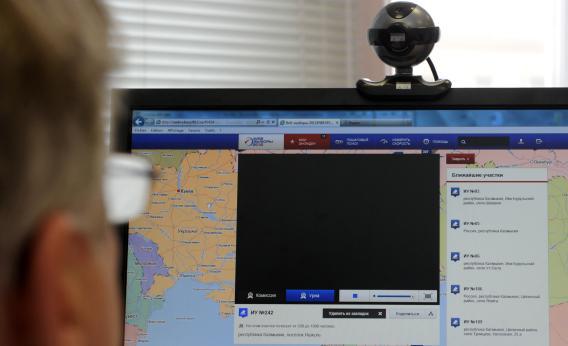California is not normally associated with draconian global censorship and surveillance initiatives. But that could be about to change with the release of a new report linking controversial American-made technology to authoritarian regimes across the world.
In recent months, a team of researchers part of Canada’s Citizen Lab have been conducting network scans of public servers in countries on almost every continent. Today, they released their findings—which appear to show that networking technology made by Blue Coat, a Silicon Valley-based company, is being used in a host of countries with questionable human rights records.
The equipment in question can serve a legitimate purpose—like filtering out spam or malware. But in the hands of an authoritarian regime it can easily be turned into a tool for monitoring users or blocking content. Citizen Lab says it found Blue Coat filtering technology capable of censorship operating in countries including Egypt, Kuwait, Qatar, Saudi Arabia, and the United Arab Emirates. It also found Blue Coat technology that can be used for surveillance and tracking of Web users in Afghanistan, Bahrain, China, India, Indonesia, Iraq, Kenya, Kuwait, Lebanon, Malaysia, Nigeria, Qatar, Russia, Saudi Arabia, South Korea, Singapore, Thailand, Turkey, and Venezuela.
“What emerged is a picture of the global spread of Blue Coat devices to countries where their presence raises substantial concerns,” the report notes, warning about how “surveillance-by-design” is effectively being built in to new communications infrastructure in countries like Iraq and Afghanistan with Blue Coat’s assistance.
This isn’t the first time Blue Coat’s technology has attracted attention. The Sunnyvale, Calif., company was previously investigated by the U.S. Department of Commerce after its network monitoring gear ended up in Syria, despite export sanctions being in place. It later emerged the equipment had found its way into the hands of Bashar Assad’s regime through a third-party seller operating in the UAE. Blue Coat initiated an internal investigation and issued a statement at the time saying it was “saddened by the human suffering and loss of human life that may be the result of actions by a repressive regime.”
None of the countries in the Citizen Lab report are currently subject to any U.S. embargo that would prohibit Blue Coat selling to them. But what this reveals is how easily countries—even those that are ruled by authoritarians with a history of crackdowns on freedom of expression—can obtain American technology that could potentially be used for mass surveillance and censorship. Blue Coat’s technologies, Citizen Lab notes, do not appear to require it to obtain a license from the Department of Commerce prior to shipment. This means the company has to rely on its own corporate responsibility policies to decide whether to make a sale.
Citizen Lab, based at the Munk School of Global Affairs at the University of Toronto, suggests U.S. lawmakers should consider how they can tighten up regulations around such dual use technologies, as is already happening in Europe. But its report also calls for more responsibility from the companies themselves. “Companies can no longer simply assert that it is acceptable to provide their technology to any prospective client, no matter how questionable, until their home governments instruct them otherwise,” it says.
Blue Coat had not responded to a request for comment at the time of publication. Spokeswoman Jennifer Ruzicka said the report was being reviewed and that the company would issue a statement later. We’ll update this post if and when we receive anything.
